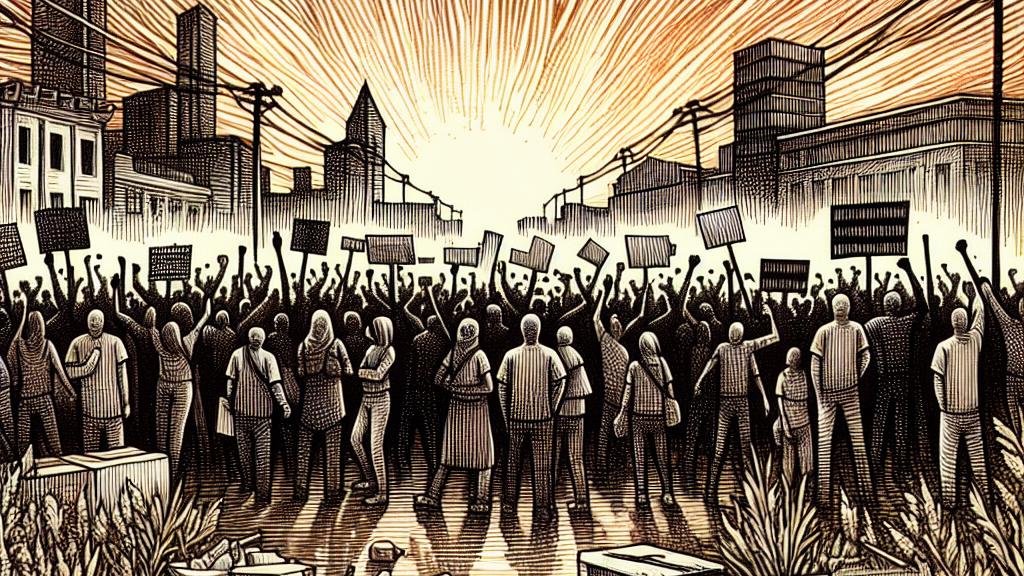Bangladesh in Turmoil: Police Strike Ends as Government Faces Reckoning!
Overview
- The Bangladesh police end a major strike following promises from the interim government.
- Escalating protests against a discriminatory job quota system lead to deadly violence.
- With Sheikh Hasina's government crumbling, citizens demand accountability and genuine reform.

Background of the Crisis
Bangladesh is currently experiencing one of its most significant political crises as student-led protests escalate in response to a controversial job quota system that reserves government jobs for descendants of freedom fighters from the 1971 independence war. This quota system, perceived as favoring a select group, has ignited widespread anger, particularly among the youth who are facing high unemployment rates. The situation intensified when clashes erupted between protesters and police, resulting in a tragic wave of violence across the nation that claimed over 560 lives since the protests began in mid-July. As the unrest mounted, the police force declared a strike on August 6, signaling a critical moment in the fight for justice and equal opportunity in Bangladesh.
The Police Strike and Government Responses
The Bangladesh Police Subordinate Employees Association initiated the strike to express their dissatisfaction with governmental practices and to demand justice and support after violent encounters during the protests. Negotiations with the newly formed interim government led by Gen. Waker-uz-Zaman resulted in an agreement for police to return to duty on August 12, 2024, after receiving assurances that their demands—including conveying accountability for the violence against police personnel—would be met. This marked a significant moment for law enforcement as they were encouraged to wear their uniforms again and take on their responsibilities in a highly volatile environment characterized by fear and distrust. Efforts to stabilize the situation are underway, with the police expected to play a pivotal role in restoring order.
The Future of Bangladesh: Challenges and Opportunities
As the authority shifts to an interim government, the future of Bangladesh hangs in the balance, with rising demands for reform and accountability from citizens. With Sheikh Hasina's government in disarray, the interim leaders are tasked with addressing longstanding issues, including the job quota system that many view as perpetuating inequality and political favoritism. The interim government has hinted at potential reforms; however, true change will require an earnest commitment to dialogue with citizens and implementation of policies that prioritize meritocracy over nepotism. As unrest continues, the country stands at a crossroads, where the decisions made by the interim leaders could significantly influence the trajectory of Bangladesh's democracy and governance. Active engagement from the populace will be essential in holding the government accountable while fostering a more inclusive political landscape.

Loading...